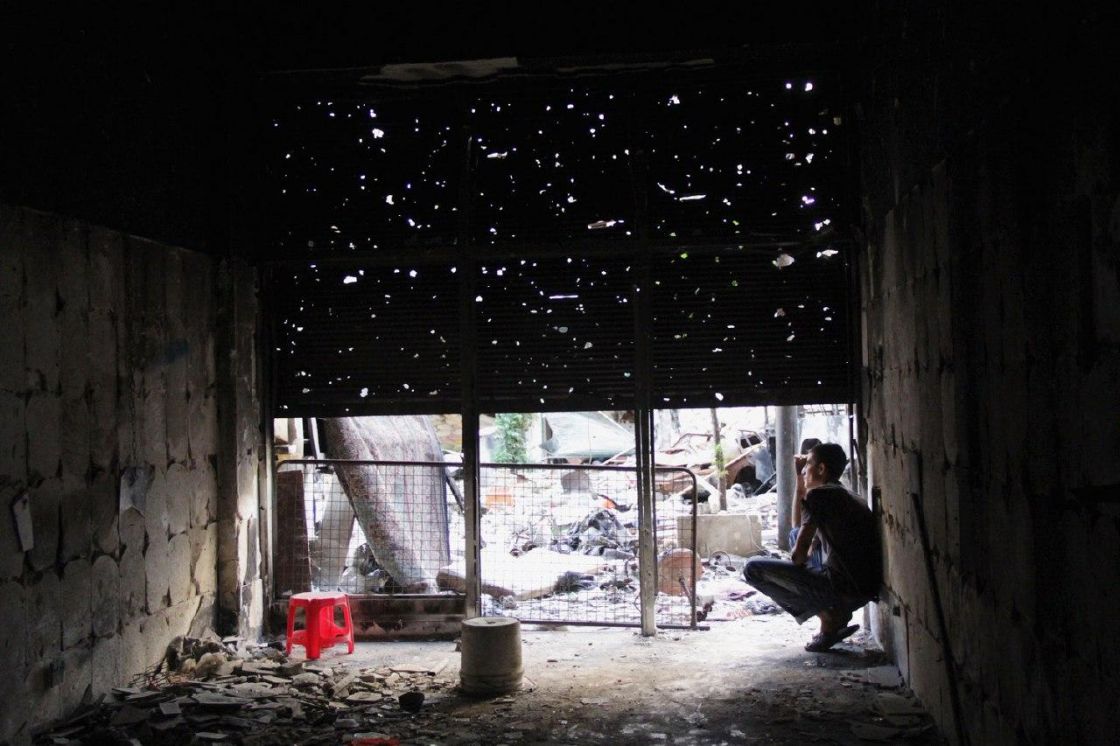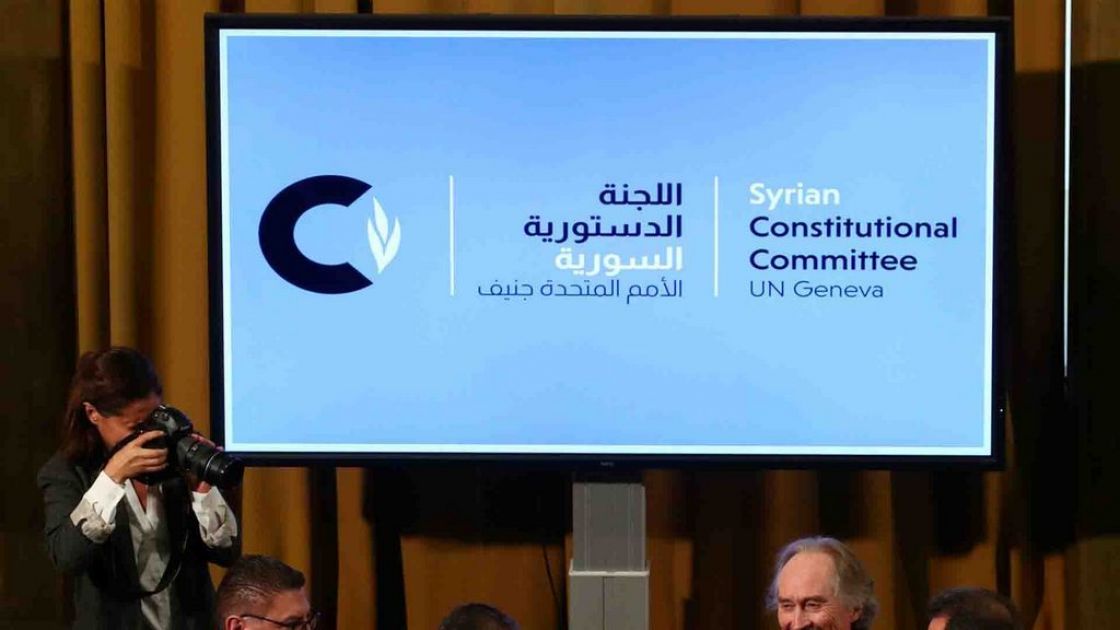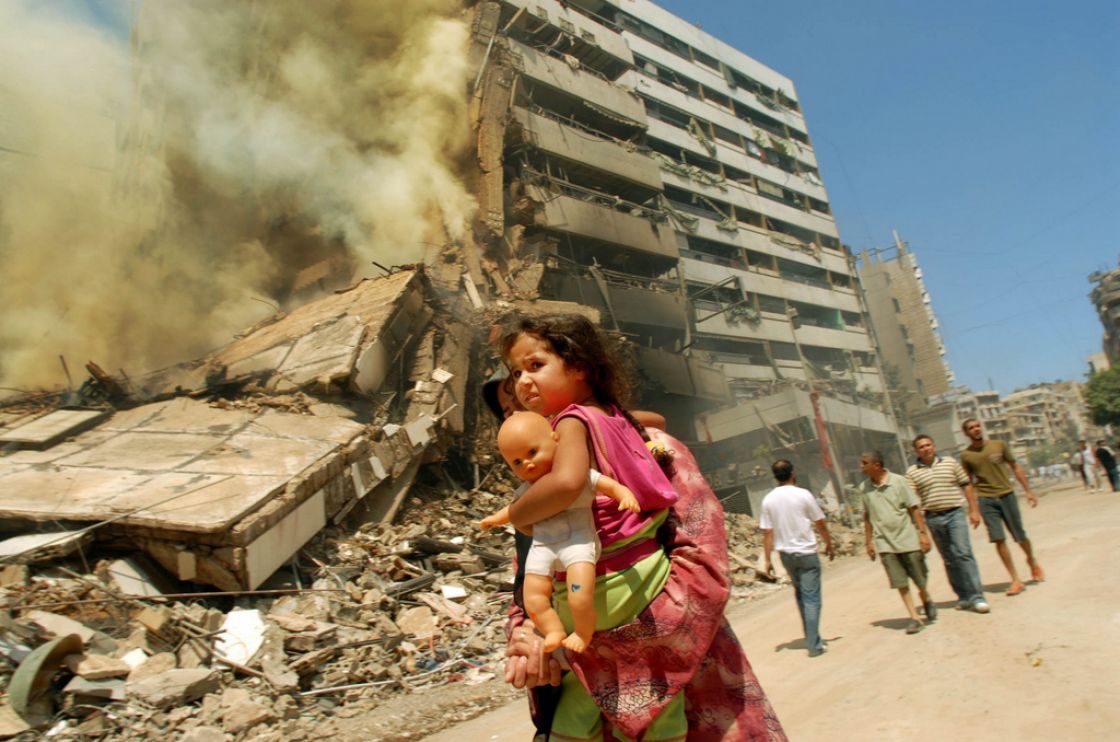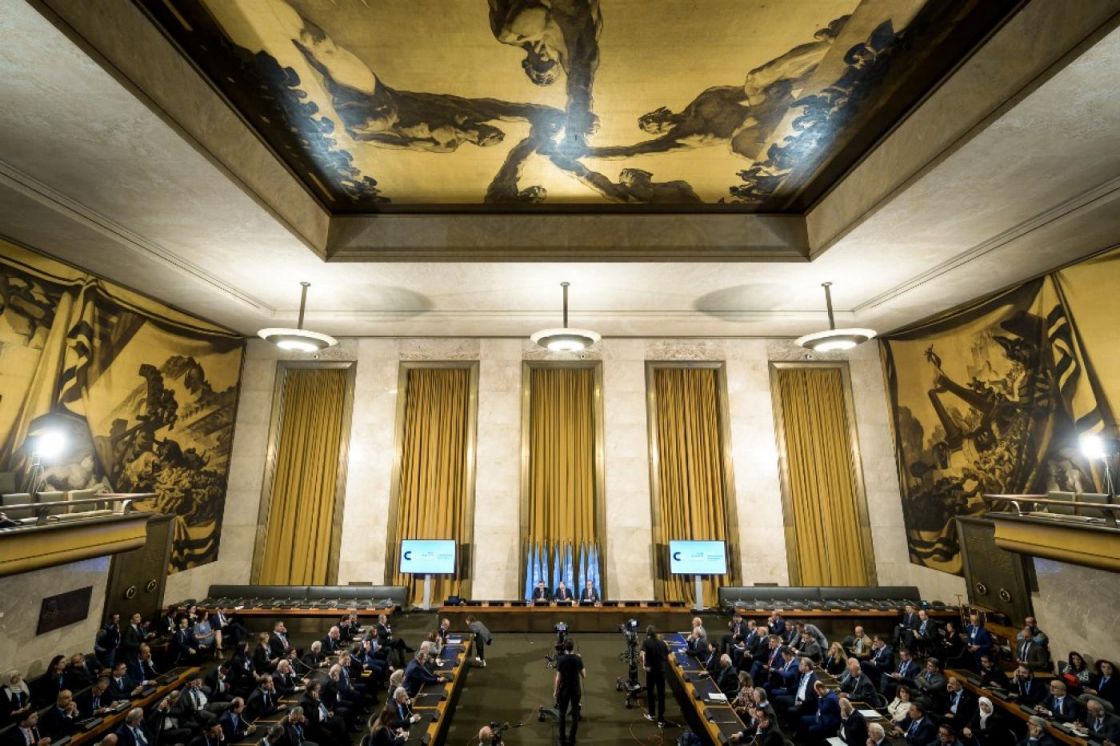- Articles
- Posted
The New Syrian Constitution: Brief or Detailed… How Do We Guarantee Establishment of the Rights and Flexibility to Amend?
If the constitution is one of the main topics that come up nowadays due to the “ongoing work” of the Constitutional Committee (which is revolving in place till now), what is more important is that talking about the new constitution and paying attention to it is mainly due to it being one of the main pillars of the political process outlined in UNSCR 2254, which specifically calls for ≪drafting a new constitution≫.
As this is an essential part of the political process, it is important to keep in mind that the constitution is part of the solution and not just merely a “legal document”, so it must hold within its folds solutions (or at least keys to solutions) to aspects of the crisis and its root causes, to ensure they do not get repeated.
At the same time, it must “codify” the interests of the Syrian people. In this sense, this desired “document” will be a summary of the history, the present, and the future. From this stems the importance of what we, as Syrians, want to see written in our constitution.
Constitutions and Crises
Typically, the constitution is described as a “social contract”, at least this is the expression that most people use. Legally speaking, a contract requires two or more parties entering an agreement that sets out obligations on the parties, and breach of these obligations by any party imposes certain penalties on the breaching party. In this sense and in very simple terms, a constitution as a “social contract” is an “agreement” between the state and its citizens with articles defining the relationship between them and who has what authorities, rights, and obligations.
In reality, constitutions define and regulate the state, the relationship between the state and its citizens, and the relationship among citizens. The constitution, being the supreme law of the state, also sets out the framework within which legislations are made and the legal basis for all laws. However, constitutions are also reflective of the specifics of each society in that it reflects the development therein at all levels – the democratic process, freedoms, rights – socioeconomic, political, cultural, etc.
In recent history, constitutions are usually amended or new ones are drafted in the context of getting out of conflicts or crises affecting a state or society, usually within the framework of political settlements, and there are tens of examples of that over the last decade alone. This is certainly the case in the context of the Syrian crisis.
While alone it is not going to resolve things, if the constitution is not drafted with the utmost care by patriotic Syrians, it can be a tool to exploit the country, the people, and the system. We know this from our own experience as Syrians over the last few decades.

A Very Brief Constitution…?
Going into some details about the new constitution, we are confronted at first by an issue that appears completely formal, and that is the length of the constitutional text, which is what we claim is an important matter, because the form is always linked to, commensurate with (to some extent), and an expression of the content.
The discussion of the “length of the constitutional document” brings us to the “first camp” of those who are proponents of having as brief a constitution as possible. Their reasoning usually stems from the idea that a permanent long-lasting constitution should be flexible enough to be suitable for any time, so that it can be responsive to whatever changes that might take place in the progress of Syrian society, while at the same time, it remains applicable and non-constraining. Those who hold this view, also argue that brevity reduces the likelihood of the emergence of an urgent need for amendment, and as it is known, the amendment process is not an easy process, and transitioning to a stable situation after a long and devastating crisis, necessarily requires a some level of legal and political stability that is not hindered by successive and temporally-close constitutional amendments.
While these reasons in theory sound somewhat reasonable, we have to keep in mind that we are living through a crisis that has hit every aspect of our lives, and a set of practices like blundering, corruption, exclusion, repression, unbalanced development (if there was development at all), etc. grew and accumulated during decades of successive crises.
This all means that a constitution with very general articles will pave the way for a lot of flexibility for legislations, laws, and legislators, something that can become a backdoor for reproducing the same practices, which will not disappear on their own. This means that we need two things in the new constitution: securing legal-legislative-political continuity and stability on the one hand, while on the other hand, securing it on the basis of breaking ties with the past and a qualitative transition away from it.
Some who are advocates of short constitutions point to many countries that have short constitutions (e.g. Norway or Luxemburg) or even countries with uncodified constitutions (e.g. the United Kingdom or Sweden, whose constitutions are classified in terms of constitutional jurisprudence as customary rather than formal constitutions), and note that these countries “operate” just fine.
However, this issue should be looked at in the historical context and framework. A closer look at examples of countries with short or uncodified constitutions while at the same time being considered “advanced” in terms of political life and freedoms, are ones that have well-established democratic norms that developed over decades and even centuries that these norms have become binding and firm constitutional customs having the supremacy of constitutional laws in terms of practice and implementation (even though they are not codified).
This is not the case in Syria, where democratic life and practices have been nearly nonexistent since the late 1950s.

… Or a Very Detailed Constitution?
On the other end of the spectrum, we find those who support the idea of having a very detailed and very long constitution. The reasoning is that with everything that Syrians have experienced over the last few decades, we need to ensure that none of the big problems that arose will arise again, and one way to do that is to remedy that in the constitution.
A very detailed constitution would leave very little room and very few loopholes for anyone or any entity trying to circumvent the system, and thus (at least in the opinion of those who advocate this) making it impossible to repeat a significant portion of the mistakes and violations against the Syrian people.
On the other hand, the danger in having a very detailed constitution is that it would leave very little room for legislation, which is meant to go into details of things. Additionally, it means a very rigid text that is more difficult to amend or change as society develops, which is the natural direction.
Thus, a very detailed constitution places constraints on development and progress, and at all levels – socially, economically, politically, culturally, etc. Moreover, the detailed constitution some talk about would list things specifically, instead of in general terms, which while that emphasizes and confirms that enumerated things, and does not allow interpretation thereof in other ways, it does pose the risk of leaving out some things that are not listed from the framework of comprehensiveness of the general legal language, which would undermine the entire constitution and make amending it a frequent practice and subject to people’s attitudes on the issues at hand.
For Syria…
We believe that a brief constitution is not one that would serve the purpose desired from the constitution now or in the near future. What Syria needs is a sufficiently detailed constitution in the right places, which would give this document, especially in the context of this phase of Syria’s history and as a major part of the political process, the importance it deserves and the role that is expected from it within the comprehensive political solution.
What is meant by details in the Syrian context does not mean that we want everything to be detailed, but those issues that have historically been kept vague or completely left out of the constitution to enable manipulation thereof through laws and legislations.
Here, it is worth noting a few things about Syrian constitutions:
- At least since 1950, Syrian constitutions have stated that Syria is “democratic republic”.
- At least since 1920, Syrian constitutions have stated that citizens are equal in obligations and rights.
- At least since 1920, Syrian constitutions talk in some way about human or individual rights and individual freedom in many aspects of one’s life.
- The current Syrian constitution (2012) touches in many articles on political, economic, social, and cultural rights; political pluralism; and the right to form / join political parties.
As seen from the above, there are many general positive slogans in Syrian constitutions, but in practice, reality is completely different, to the point where in many cases it is a blatant violation of the constitution and a total opposite of what is written.
Additionally, in many instances the language is vague and general, and details are referred to legislation, which imposes a plethora of restrictions that make some rights nearly meaningless even though they are technically constitutionally guaranteed. In this context, the current Syrian constitution (2012) contains 157 articles, in those there are 65 instances where issues are referred to a law / legislation, many of them relating to basic rights and freedoms.
Therefore, experience shows that limiting the constitution to slogans and general positive content has not been translated into a positive reality for the Syrian people even in the most basic of rights and freedoms. As such, it is necessary to include more details in the constitution to establish more solid constitutional grounds and limit the ability for manipulation by legislators.

The Next Legislator?
This is very critical as noted above since democratic life and practices have been nearly nonexistent since at least the late 1950s, something that can no longer be left to the legislator alone.
This is of particular importance in this point of our history, as Syria comes out of this crisis, political life will take some time to get to the desired form we want as Syrians, and the next legislators – at least during the first wave – will be the direct product of the current level of political democratic development.
That is, Syrians will not necessarily succeed in choosing the forces, parties, and persons that represent their true interests from the first time, which is normal and expected. Neither the political movement itself is mature enough, including its programs, slogans, practices, etc., nor are people accustomed to political action in its advanced formulas that make them able, even at a minimum, to know “who is who”.
In this sense, political life in the first stages after the crisis will be highly volatile, something that is known to be the experience in many countries emerging from catastrophic crises, including some that are less deep than our own.
With this volatility, critical issues directly connected with Syrians’ interests especially those relating to democracy and socioeconomic and political rights and freedoms cannot be left to the first or even second wave of legislators who will not be all fully working for the people’s interests. Therefore, the most important constitutional issues have to be determined until the foundations of the desired political life are solidly laid, regardless of who will be our “first legislators” post-crisis.
Constants and Details That Are a Must
In the context of democracy and establishment thereof, and to lay solid basis for inclusive political life, we believe that constitutional articles relating to election laws that include some key general principles should be ascertained in the constitution with some degree of detail to prevent manipulation through elections laws and legislations. These also include matters like establishing a proportional system and a single district (See also, Kassioun, issue #976 “Syria: Majority and Proportional”, (only in Arabic)).
Another example in this regard is the balance between centralization and decentralization. In the current Syrian constitution (2012) there are only two articles (Articles 130 and 131) relating to local administrative units with very vague and general language, and refers the details to a law, which from experience has proven insufficient, not to mention that it is not implemented to begin with.
The relationship between the center and the peripheries is another area where we see a need for some amount of detail in the constitution that clearly lays out the authorities delegated to the local level, a fair distribution of national wealth, and more autonomy in certain matters. (See, Kassioun, issue #982 “Centralization and Decentralization… Initial Thoughts”, (only in Arabic)).
When it comes to socioeconomic, political, and cultural rights, we also see that the constitution should have more details in order to constitutionally protect them by going beyond general rhetoric and slogans that have never seen the light of life. For example, workers’ rights should be laid out in more specific terms in the constitution, including mandatory adjustments of wages according to the standard of living that gets revised based on periodic indicator. Other workers’ rights like the right to strike should include certain amount of detail that ensure serious protection thereof away from the employers’ authority and control.
These types of details should be found in the constitution with mechanisms to monitor and remedy them in case actions or practices violate them, specifying the relevant entity in charge of adjudicating constitutional violation, and how to give said entity the necessary authority and independence to carry out its role.
In Summary
What we need is a constitution that is detailed enough to lay solid foundations for the Syria we, as Syrians, desire and transforms the slogans and rhetoric into reality, by ensuring no misuse of the constitutions by any government, elected official, or state institution, or use as a tool to oppress, repress, plunder, or do anything that is against the interest of Syrians and Syria. At the same time, the constitution should be flexible enough for future generations of Syrians to enjoy these same benefits without being constrained by the shackles of our suffering.
The right amount of detail that should go into Syria’s new constitution cannot be determined in a vacuum and cannot be achieved without participation of all Syrian sides. From this stems the importance of Syrians reaching out to each other, sitting together, talking and listening to each other, in order to reach the common denominators among them and resolve their differences. From this also stems the crucial importance of what we demanded and continue to demand, which is that discussions related to the constitution should be public and can be watched by all Syrians. Those who reject this demand, whatever their pretexts, implicitly express either their fear of appearing helpless and deficient in front of all Syrians or that they are working for narrow interests far from the Syrians’ interests, and therefore they prefer to work behind closed doors.



 Reem Issa
Reem Issa